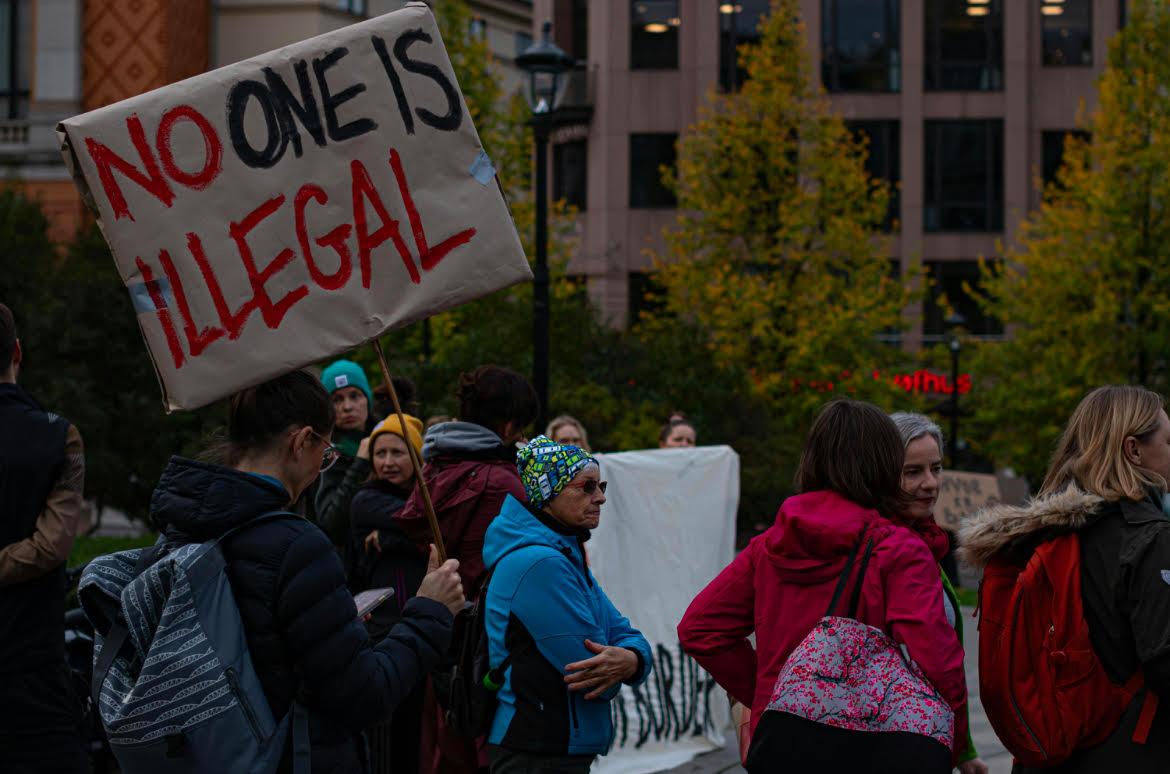Todd M. Lyons, Acting Director of U.S. Immigration and Customs Enforcement (ICE) Photo source : ICE / DHS
In a sharp escalation of the agency’s enforcement posture, Lyons stated: “If we encounter someone who’s here in the country illegally, we will take them into custody.” The remarks mark a shift from prior policies that prioritized apprehension of individuals with serious criminal offenses or national security concerns.
“We still prioritize the worst of the worst,” Lyons said. “But we’re not going to turn our back on immigration violations just because someone doesn’t have a rap sheet.”
The policy, which has alarmed immigrant communities and civil rights advocates, reflects a broader strategy by the Biden administration’s successor, President Donald Trump, to intensify immigration enforcement and override sanctuary policies in place in multiple states and cities.
Under the expanded guidance, ICE officers conducting workplace operations or targeted arrests will now also detain any undocumented individuals encountered at the scene—even if they were not initially targeted. These so-called “collateral arrests” have been criticized by human rights groups as indiscriminate and likely to create fear among law-abiding immigrant communities.
ICE has said the increased community operations stem from local law enforcement agencies refusing to honor ICE detainers—requests to hold undocumented individuals already in jail for transfer to federal custody. “When jurisdictions won’t cooperate, it forces us to go out into communities,” Lyons told CBS.
As of July 2025, ICE has reinstated workplace raids in several states and revived its controversial “no sanctuary” policy, allowing agents to conduct arrests even near sensitive locations such as schools, hospitals, and courthouses—actions once discouraged under previous administrations.
According to an internal DHS memo obtained by the Associated Press, ICE has also ramped up daily arrest quotas and reduced detainee access to immigration bond hearings. A proposal introduced earlier this month aims to deny initial hearings for certain detainees, effectively prolonging detention without judicial review. Civil liberties groups have already filed legal challenges.
The agency has received increased funding to expand detention bed capacity and transport resources. In fiscal year 2025, ICE aims to detain between 3,000 to 7,000 individuals per day, up from a daily average of 1,900 earlier this year.
“We’re deeply concerned that ICE is criminalizing presence alone,” said Andrea Flores, a senior policy counsel at NILC. “Being undocumented is not a crime—it is a civil violation. Treating it as criminal opens the door to unconstitutional overreach.”
In sanctuary jurisdictions such as San Francisco, Los Angeles, and New York, local officials say they are limited in their ability to protect residents from federal enforcement but vow to continue supporting legal defense programs, community alerts, and immigrant service hubs.
Know your rights
Legal experts stress that all individuals—regardless of immigration status—have constitutional rights. These include the right to remain silent, the right to speak to a lawyer, and the right to refuse consent to a search without a warrant signed by a judge.
Several cities have reactivated ICE watch networks such as StopICE.net, a rapid-response system with more than 470,000 subscribers that alerts communities of reported ICE activity.
Ongoing legal battles
As ICE expands its authority, immigration courts are bracing for a surge in case backlogs and detainee intakes. Meanwhile, civil rights organizations continue to monitor arrests for possible constitutional violations. Lawsuits have already been filed against ICE’s courthouse arrests and expanded use of detainers without probable cause.
For Filipino American families and other immigrant groups with undocumented members, advocates advise immediate consultation with qualified immigration attorneys and legal aid clinics.
For legal resources and updates, visit: www.







